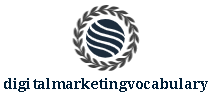Search Targeting: Enhancing Digital Marketing Strategies
In the realm of digital marketing, search targeting stands as a vital strategy for businesses looking to connect with their audience effectively. It's all about refining the focus of your marketing efforts to reach the right people at the right time through search engines. By understanding and implementing search targeting, we can enhance the relevance and impact of our digital marketing campaigns.
We explore how search targeting allows us to tailor our advertisements based on specific search queries, user behaviors, and demographic information. This practice enables us to allocate our resources more strategically, ensuring that our message reaches those most likely to engage. It’s not just about driving traffic; it’s about attracting the right traffic that leads to conversions.
Search targeting also provides crucial insights into customer intent, which is key to refining our marketing strategies. With the right tools, we can analyze data that reveals what potential customers are searching for and how they interact with search results. This empowers us to adapt and meet the demands of today's market with precision and efficiency.
Fundamentals of Search Targeting
Search targeting allows us to optimize digital marketing strategies by refining audience reach and boosting engagement. It's crucial to understand what it entails, its role in digital marketing, and its key components.
Defining Search Targeting
Search targeting refers to the practice of directing advertising and content to specific audiences based on their search behaviors and queries. By analyzing search intent, we tailor our content and ads to align with users' interests and needs.
This approach improves ad efficiency and relevance. We use keyword research and audience data to identify trends and patterns, ensuring that our messages reach the right people at the right time. Search targeting is a powerful tool that enhances engagement and ROI.
Importance in Digital Marketing
Search targeting plays a pivotal role in digital marketing. It allows us to hone in on users actively seeking specific information or products. This targeted approach ensures our marketing efforts are not wasted on disinterested audiences.
Incorporating search targeting in our strategy increases the likelihood of conversion and engagement. We can leverage tools like Google Ads to set parameters and optimize ad spend. By aligning our content with user intent, search targeting helps maximize the effectiveness of marketing campaigns.
Key Components
Successful search targeting relies on several critical components. Keywords form the foundation, guiding us in crafting relevant ads and content. Additionally, understanding user demographics and preferences helps in fine-tuning campaigns.
Another vital element is data analysis. Utilizing analytics platforms, we examine search trends and user behavior, enabling data-driven decisions. Through A/B testing, we refine our strategies, ensuring optimal performance. Comprehensive search targeting integrates all these components for superior results.
Strategies for Effective Search Targeting
In mastering search targeting, we focus on keyword research, understanding user intent, and effectively using search engine algorithms. Each element plays a crucial role in optimizing our strategy and delivering the best results.
Keyword Research Techniques
To build an effective search strategy, we begin with keyword research. Identifying relevant keywords involves a mix of tools and analysis. We use platforms like Google Keyword Planner and SEMrush to uncover valuable search terms, considering metrics like search volume and competition.
Long-tail keywords are essential as they tend to target more specific queries. These terms often lead to higher conversion rates. By focusing on relevance and intent, we can align our content with what users are actively seeking.
Another key aspect is continuously updating our keyword list. Search trends evolve, and staying aware of these changes keeps our strategy aligned with current demands. Monitoring competitors' keywords can also provide insights and opportunities.
Understanding Search Intent
Understanding search intent is critical in aligning our content with user needs. We categorize search intents into informational, navigational, and transactional. By analyzing search queries, we determine the user’s goal, allowing us to tailor content appropriately.
We focus on intent signals, such as specific wording in queries. These clues help us determine whether users are looking for information, specific websites, or are ready to make a purchase. By decoding intent, we can more accurately meet their expectations.
Additionally, search intent influences the type of content we create. For example, blog posts suit informational queries, while product pages cater to transactional needs. This ensures our content effectively serves its purpose.
Utilizing Search Engine Algorithms
Staying informed about search engine algorithms is vital for targeting success. Search engines continually update their algorithms to improve user experience and rankings. We keep abreast with changes through industry news and following trusted SEO resources.
We implement strategies that align with algorithms by focusing on high-quality content, mobile-friendliness, and page speed. These factors contribute to improved rankings. Additionally, understanding factors like backlinks and domain authority helps in refining our approach.
Adapting quickly to algorithm changes is essential. By analyzing performance data, we identify areas needing adjustment, ensuring our content remains visible. Being proactive allows us to capitalize on algorithm updates, enhancing our search targeting efforts.

 EN
EN DK
DK SR
SR DE
DE FI
FI